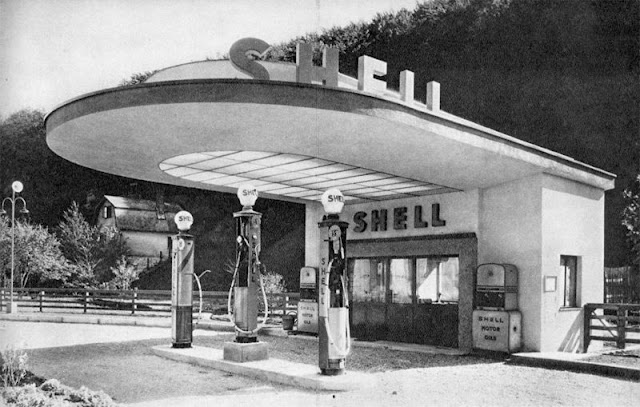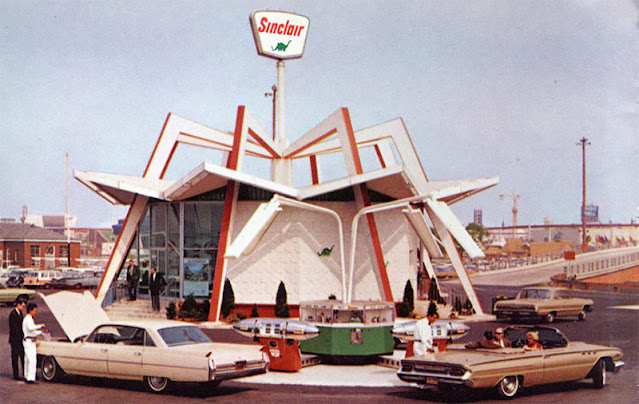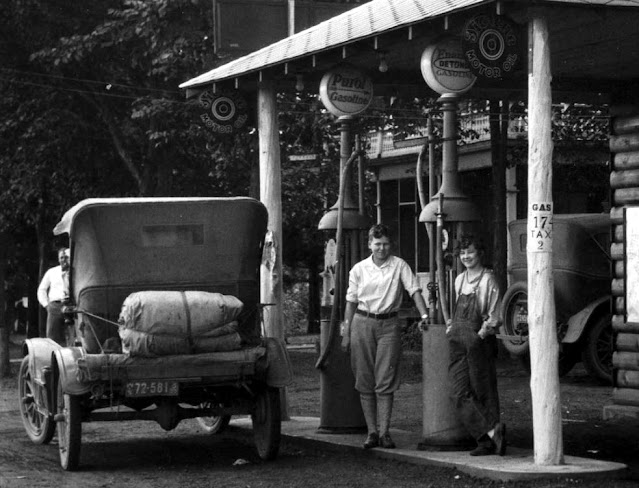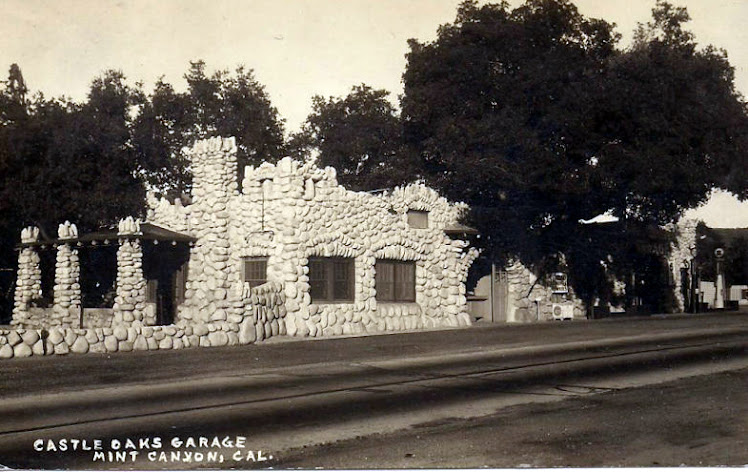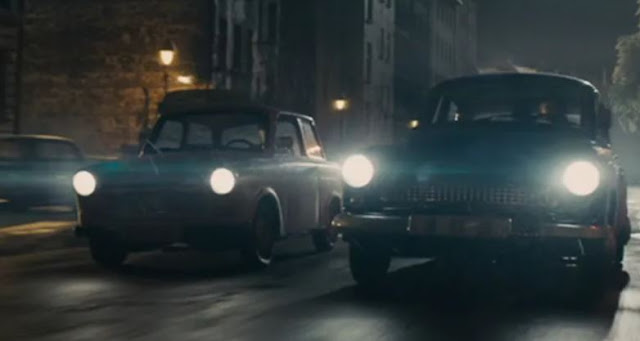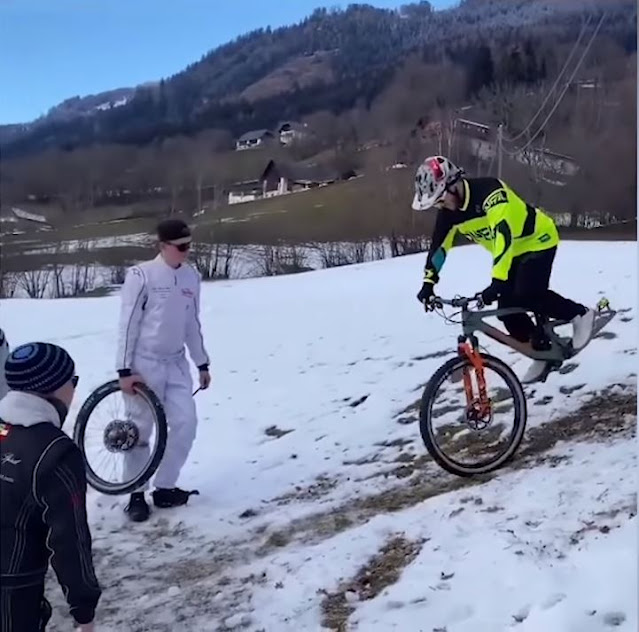https://www.oldgas.com/forum/ubbthreads.php?ubb=showflat&Number=255465#Post255465
The site was originally developed by the Dodrill family in the early part of the last century. The first family member came to America as a Revolutionary War Tory soldier. His nickname was “English Bill”. He was taken prisoner and later escaped.
He wanted to stay in America so he changed his name from Doddridge to Dodrill.
His grandson, William Arch Dodrill was born in 1888 in Stevens Creek, Lancaster County, Nebraska. In June 1915, the grandson married 22-year-old Rachel Joyce Swanson at the Bible Institute in Los Angeles.
Soon afterwards, they bought a parcel of land from Mr. Seeley who had homesteaded 160 acres there in 1912, along what is now the Sierra Highway and built a roadside gas station which first opened for business in 1917 on Mint Canyon Road.
In the early days, this route started as a pack-animal trail. During the 1910’s, it was widened into a dirt road suitable for vehicular traffic running between Los Angeles and Lake Tahoe. Between 1937 and 1964, it was renamed U.S. Route 6. It was part of the longest transcontinental highway crossing the country at the time.
It started as a simple wooden building with a tar-papered roof, with just one gasoline pump out front. The Dodrills positioned the building right next to a majestic oak tree, and called their new enterprise the “Oaks Garage”. In the shade of this oak, they built an outdoor refreshment stand selling bottled drinks.
The family lived in a wooden building with a tent-covered roof set back directly behind this beautiful oak tree. This was a form of temporary shelter that was commonly used in that era.
In addition to selling gasoline and motor oil to passing motorists, the garage provided automobile repairs. Will Dodrill was a certified auto mechanic. It was a popular stop for day trippers travelling from Los Angeles to Palmdale or Lancaster, perhaps enjoying side trips to attractions like Vasquez Rocks and the Red Rover gold mine.
After the first few years of operation, the Dodrills decided it was time to expand the business. Using a horse and wagon, they hauled river stones from Big Rock Creek in the Valyermo area, south of Pearblossom. This trip took two days to complete in each direction.
In 1923, they extended the main structure by building a cafe and a family home for themselves adjoining the garage. They used the stones stockpiled the previous year to build the outer walls. Rachel’s father, Gus Swanson, a bricklayer by trade, came to help with the construction. These attractive, rounded stones gave the new building a castle-like appearance, and it quickly became known colloquially as the “rock house.” It was subsequently referred to as the “Castle Oaks Garage and Cafe” on postcards from that era.
A line of five new gas pumps stood in front of the new building. They had a public telephone booth right next to the gas pumps. Their telephone number was The Oaks No. 1. In those days, first grade Economy gasoline cost 17 cents a gallon.
The new cafe started as a window counter, and was later upgraded to a long, elegant counter with about 20 bar stools.
As an eye-catching feature, they incorporated the large oak tree that used to shade the old refreshment stand into the front stone wall of the new building. It stood majestically between the garage on the right, and the new cafe on the left. A drinking fountain was installed at the base of this signature oak tree.
The Dodrills built five wooden cabins which are still in use today (two of them are now joined together into a single structure). They were rented as overnight accommodation to passing motorists. They also developed a campground among a pleasant grove of oak trees directly across the road.
Will & Rachel’s first-born daughter, June, married the apprentice mechanic. His name was Monte Boster and he started working with June’s father in the garage at age 16. They were married when Monte turned 21.
The Oaks was a destination for many of the movie stars of the day. Roy Rogers and Dale Evans used to come by in their jeep to fill up with gas. William Boyd (Hopalong Cassidy) would visit with his crew when they were shooting movies at Vasquez Rocks. “Hoppy” even used to help Marie Lamar in the kitchen. Jane Wyman would sit in the cafe and study her scripts.
Clark Gable would park his motorbike outside and eat in the cafe. The Lamars’ grandson, Fred Sohegian Jr., relates a story about Clark Gable: “The Oaks was jammed, and Clark Gable was sitting at the counter. My grandfather always was in the garage or driving the tow truck or ambulance. If a cook didn’t show up, or they got busy, my grandmother would go get him to work, which he didn’t really like. He was waiting tables and Clark Gable stopped him and said, ‘ I have been waiting for service, and do you know who I am?’ My grandfather said, ‘ I know who you are’, and then asked if he knew who all these men were sitting at the counter and tables. Clark Gable says,’ no I don’t’. My grandfather told him that these were his regular customers and he can wait his turn, and kept going.”
During the 1930’s and 40’s, popular motocross events attracted other notable visitors from the Beverly Hills Motorcycle Club, including Gregory Peck, Wallace Beery, Keenan Wynn, and Lee Marvin. They came to ride their motorbikes in the hills across the street, or to watch the events.
The Oaks operated continuously right through the Depression and WWII. After 30 years of successful operation, the Dodrills sold their Oaks Garage business in 1946. William Dodrill was almost 60 at the time, and was suffering from poor health. The couple retired to Fall River Mills in northern California.
In 1971, the Oaks building was made famous by the movie director, Steven Spielberg. He used it as a location in his feature-film debut, “Duel”. Now a cult classic, the success of this movie helped to establish Spielberg as a director.
“Duel” is the gripping story of a business commuter (Dennis Weaver) who is pursued and terrorized by a tanker-truck driver who tries to kill him with his truck for no apparent reason. The recognizable Castle Oaks building was the location for Chuck’s Cafe, a truck-stop diner featured in the movie. Several scenes were shot there, both inside and out.\
LeChêne French Cuisine is a popular destination restaurant on Sierra Highway near Agua Dulce. The restaurant has been delighting customers with fine food and wines for 30 years. The translation of the restaurant’s name “Le Chêne” means “The Oak”. This area has always been noted for its beautiful, centennial, oak trees. Starting in 1917, there has been a long tradition of naming businesses operating at this location after these magnificent oak trees.
The current owner of the “Castle Oaks” bought the building in 1981 when he started what is now the renowned Le Chêne French restaurant.
In 1987 the old garage area was renovated and turned it into a banquet room for special events. The kitchen was enlarged, and the whole building brought up to earthquake code.











